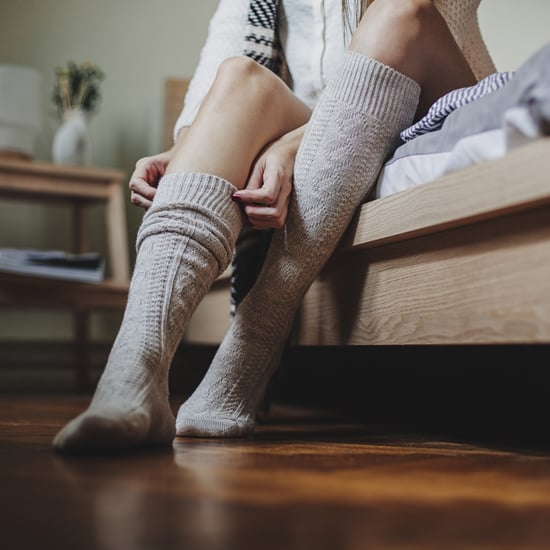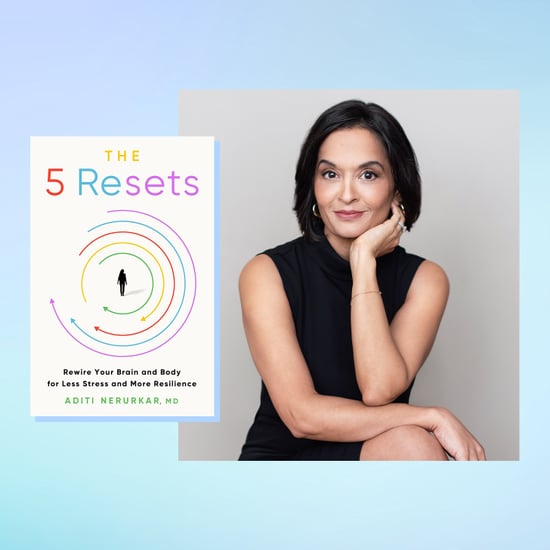How to Fall Asleep When You're Stressed
4 Simple, Doctor-Approved Tips For Falling Asleep When You're Stressed and Overwhelmed

I'm a good sleeper until I get stressed. Instead of quickly nodding off to my soothing white noise machine, I'll lie awake for an hour thinking about everything I have to do, then wake up from stress dreams. Instead of sleeping straight until my alarm, I'll bolt awake in panic, hours early, for no apparent reason. I need all the sleep I can get when I'm stressed, but it's when I'm stressed that I just can't get it.
"When a person feels stressed, they are in a hyper-aroused state," explained Sara Benjamin, MD, a board-certified physician in neurology and sleep medicine at the Johns Hopkins Centre for Sleep. Your body pumps out stress hormones like cortisol and norepinephrine, which speed up your breathing and increase your heart rate. "These hormonal changes can keep the brain active and make it harder to fall asleep," Dr. Benjamin explained, while also causing you to wake up frequently during the night. Combine that with the fact that your brain is naturally more active when you're stressed — thinking about your to-do list, worrying about finishing everything — and it's no wonder I have a hard time getting restful sleep.
That's an issue, because "getting sufficient sleep is probably one of the most important ways to help you to deal with stress," Dr. Benjamin told POPSUGAR. "Deep sleep helps you to consolidate your memories and will help you to have better judgement to deal with life's challenges." And failing to get enough sleep leaves you sluggish and less efficient, making it harder to get things done.
It's a catch-22; sleeping when you're stressed is difficult, but if you don't get enough sleep, you won't be able to deal with that stress. So how can you force yourself to nod off when your brain just won't slow down? Dr. Benjamin offered a few pieces of advice to for falling asleep and staying asleep when you're stressed out.
How to Fall Asleep When You're Stressed
- Read or listen to music to calm down. "Allow time to relax and transition to sleep," Dr. Benjamin said. One hour before bed, put down any work or stressful activities and turn to something that will calm you down, like reading, meditating, listening to music, or taking a warm bath.
- Write down your thoughts. If your mind isn't slowing down, pick up a journal or a pad of paper and jot down what you need to get done, or just vent about what you're feeling. Getting your thoughts down ahead of time helps you avoid ruminating when you're trying to fall asleep.
- Exercise during the day. Exercise is itself a great antidote for stress. Turns out a good workout can help you sleep better, too, by pumping up your heart rate and tiring out your body so you're sleepy at night, Dr. Benjamin said.
- Don't stress about sleep. It's normal to sleep better on some nights than others, Dr. Benjamin said. If you didn't get good rest last night, don't let that stress you out even more. Try getting a 15-20 minute power nap and do your best to get better sleep tonight by unwinding and getting to bed early.
Prioritising your own health as much as possible can help you get through periods of stress and anxiety. Sleep is just one piece of the puzzle, but it's a big one; sleeping deeply and restfully every night can give you the energy and strength you need to face your challenges, whatever they may be.








